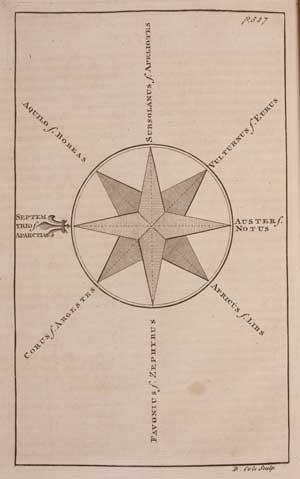Then she; who is it, O Orpheus, that has destroyed miserable me, and thee also? Whose great madness was this? Lo, again the cruel Fates call me back, and sleep seals up my swimming eyes. And now adieu: I am carried away encompassed with thick darkness, and stretching out my hands to you in vain, alas being no longer yours. She said, and fled suddenly from his sight a different way, like smoke mixing with thin air: nor did she see him catching in vain at the shadows, and desiring to say a great deal more; nor did the ferry-man of hell suffer him again to pass over the withstanding lake.
What should he do? Whither should he betake himself having twice lost his wife? With what complaint should he move the Manes with what song the deities? She already sat shivering in the Stygian boat. It is said that he lamented seven whole continued months under a lofty oak, by the waters of deserted Strymon, and that he sung his misfortunes under the cold caves, appeasing tigers, and leading oaks with his song.
So the mourning nightingale, under a poplar shade laments her lost young, which some hard-hearted ploughman observing, has taken from their nest unfeathered; but she wails all night, and sitting on a bough continues her melancholy song, and fills the places all around with her complaints.
No love, no marriage rites could bend his mind. Alone he surveys the Hyperborean ice, and snowy Tanais, and the plains never free from Riphaean frosts; lamenting his ravished Eurydice, and the fruitless gift of Pluto. The Ciconian dames enraged at his neglect of them, tore the young man in pieces, even at the sacred rites of the gods, and nocturnal orgies of Bacchus, and scattered over the wide plains his limbs.
Even then, whilst Ocagrian Hebrus bore his head, and rolled it down the middle of the tide, his voice and even his cold tongue called Eurydice, ah poor Eurydice, as his life departed, and all the rocks repeated Eurydice through the whole river.

